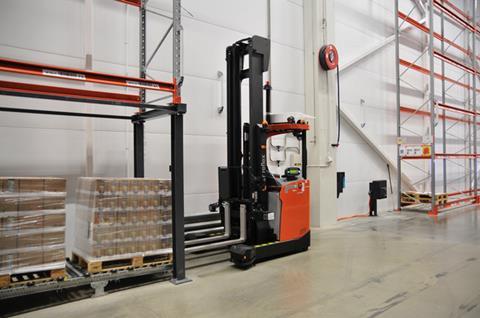The increase in National Insurance contributions paid by employers is behind a rapid increase in the replacement of warehouse workers with robots, according to Toyota.
The material handling company said interest in automated warehouse tech had surged since the Chancellor’s autumn Budget statement as logistics businesses scouted for ways to slash their wage bill.
It said a hike in the rate at which NI contributions are paid by 1.2% to 15%, combined with a lower threshold after which employers start paying NI on an employee’s salary, had added considerably to the wage bill of most companies.
Toyota cited estimations that showed for each individual forklift truck driver employed on an average salary for the role of £23,400, the NI changes added around £800 per operator, per year.
Paul Freeman, Toyota head of business development, said: “With the prevailing shortage of warehouse workers already driving wage competition, interest in automated systems was high before the budget, but since the increase in NI costs announced by the Chancellor of the Exchequer the number of serious requests we’ve been getting for information about automation and robotics has increased significantly.
“By effectively making it more difficult and costly to recruit warehouse personnel, the Chancellor of the Exchequer has accelerated the trend for companies in all sectors to introduce automated and robotic solutions as a way of mitigating the impact of the high cost of labour on operating overheads.”

Following the autumn Budget statement, the UK Warehousing Association predicted that the “double whammy” of increasing NI and reducing the threshold at which employers pay it from £9,100 to £5,000 would hit warehouse operators hard.
It said the Chancellor’s statement proved that the country required a logistics minister.
Freeman added: “Logistics services companies were already starting to transition away from their traditional reliance on people to a more automated approach, but since the budget the pace of change appears to have rapidly increased.”














